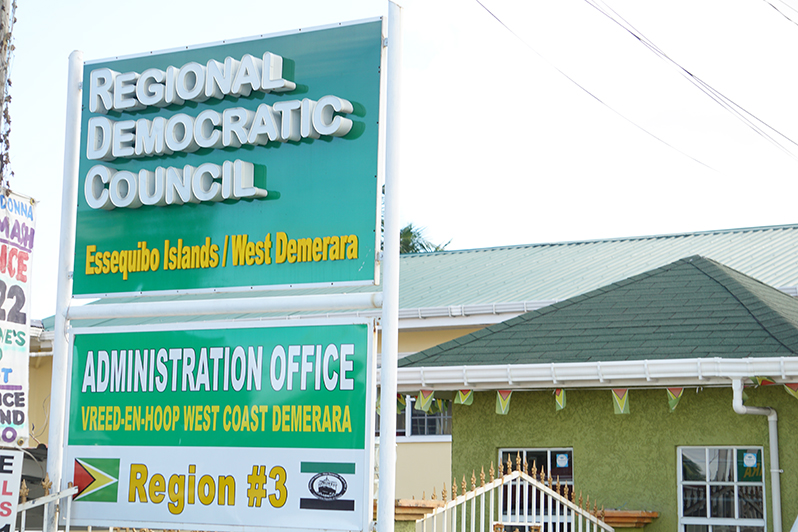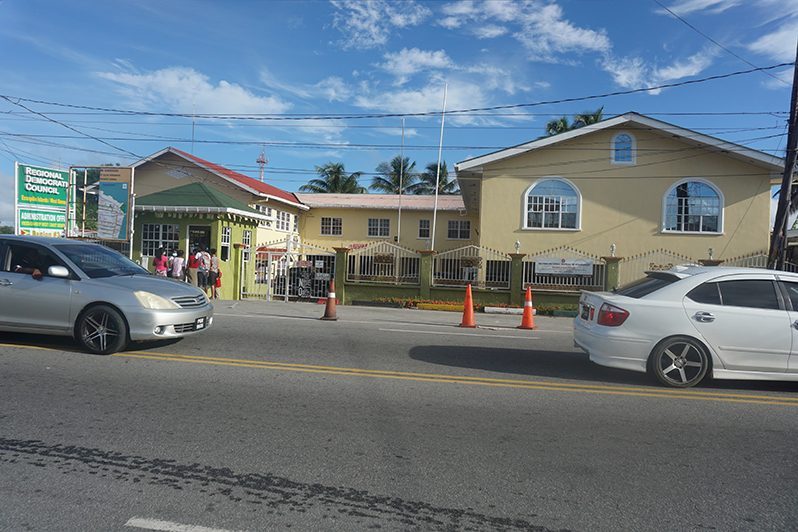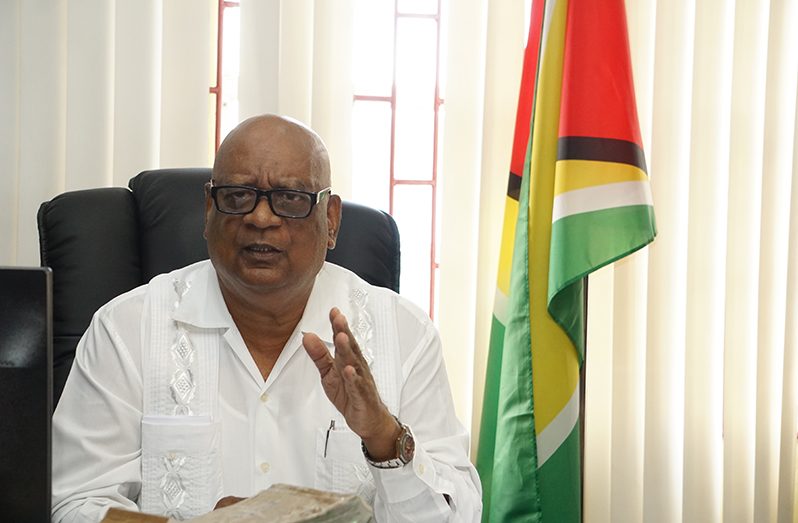THIS week, the Pepperpot Magazine journeyed over land and sea to visit the riverine villages of Aliki and Beri-Bissiballi/Lanaballi, which are located on the right bank of the Essequibo River, on the mainland.
These two communities can be reached via boat about 45 minutes to an hour from Parika and a much shorter distance from Hubu Koker, East Bank Essequibo.
These villages are agriculture-based with large-scale farmers, poultry and livestock farmers as well as small-business owners and suitably qualified individuals, who work in both the private and public sectors.
The Pepperpot Magazine had an interview with Regional Executive Office (REO) for Region Three (Essequibo Islands/West Coast Demerara) Jagnarine Somwar, who spoke of the developmental highlights being focused on by the current administration to improve the lives of the villagers.

He pointed out that as it relates to Aliki Village, it is home to a multi-ethnic society and the people are mostly farmers, health care professionals, teachers, small-business owners, loggers, miners and fishermen.
Somwar related that as REO he was given a presidential directive by President Dr. Mohamed Irfaan Ali to ensure that residents of all riverine communities benefit equally from all basic facilities and services.
He disclosed that when the administration of the Regional Democratic Council (RDC) took over, the budget cycle the expenditure was already allocated.
Somwar added that as such, projects are on stream, but they are awaiting the yearly budget for newer projects to materialise.
He reported that the riverine communities have already benefitted from the government’s cash-grant relief of $25,000 per household for COVID-19 and schools are being prepared to be re-opened in January.
The REO stated that they have permanent health teams at various checkpoints in the riverine communities.
He disclosed that Aliki Village has a primary and nursery school housed in one compound and their main economic activities revolve around fishing, farming and mining.
Somwar pointed out that he is aware of the challenges of the riverine people, since their only mode of transportation is by boat and it is costly to travel, since they have to purchase gasoline.
He stated that developmental works have been planned for Aliki in which repairs to the schools will take place and the playground will be enhanced for recreational purposes.
Somwar added that most of the produce from Aliki Village goes to Hubu Koker and it is sold to wholesalers.
The official pointed out that the village has a health centre and drugs are provided through the regional administration, but recently there was a drug shortage and that has since been rectified.
“Like most riverine villages, we depend heavily on the locals for a feedback on things, since we do not have a physical presence there and we cooperate with the villagers to foster a good relationship in terms of development,” he said.

Meanwhile, the REO reported that Beri-Bissiballi Village is next door to Lanaballi and it is a large-scale farming community of citrus, plantains, bananas, fruits and vegetables.
He noted that the residents are predominately Indo-Guyanese and some Indigenous, who are employed on farms.
Somwar said Beri-Bissiballi/Lanaballi Village is a relatively large landmass that stretches for miles and it is on the mainland as well.
It is located on the right bank of the Essequibo River and is home to about 70 families, who enjoy a scenic life of nature and in relative peace and quiet.
This riverine village has a primary school, a nursery school and a health centre and they have more access to Parika and Hubu.
Somwar revealed that they have a team moving from Caria Caria to Buckhall for COVID-19 monitoring and testing and for Great Troolie Island, they have had assistance from the NDIA to get dredging equipment on barges where they had landfilling exercises and dredging.
He stated that in most riverine communities there are aware of the bat infestation in schools and other government buildings and they will look at that, since it is not a healthy situation for children.
Somwar disclosed that next year a budget will be allocated for riverine communities and an engineer will visit these places to assess the needs of the people, after which the report will be vetted by the councillors.
The REO of Region Three is also the Head of the Budget Agency and has the responsibility of the delivery of education, agriculture and public works services and also holds the portfolio as Clerk of the RDC.
Somwar is mandated to carry out instructions in the development of the region and is guided by the yearly budget.
He is also the Chairman of the Tender Board and was appointed as Region Three REO in August.
Before his recent appointment, he was REO for Region Nine and served that region for three years.
“The country is on the move with this government and Region Three is on the move as well, and he is willing to work with residents of the communities for enhanced development, since he is most answerable to the people,” he said.



.jpg)








